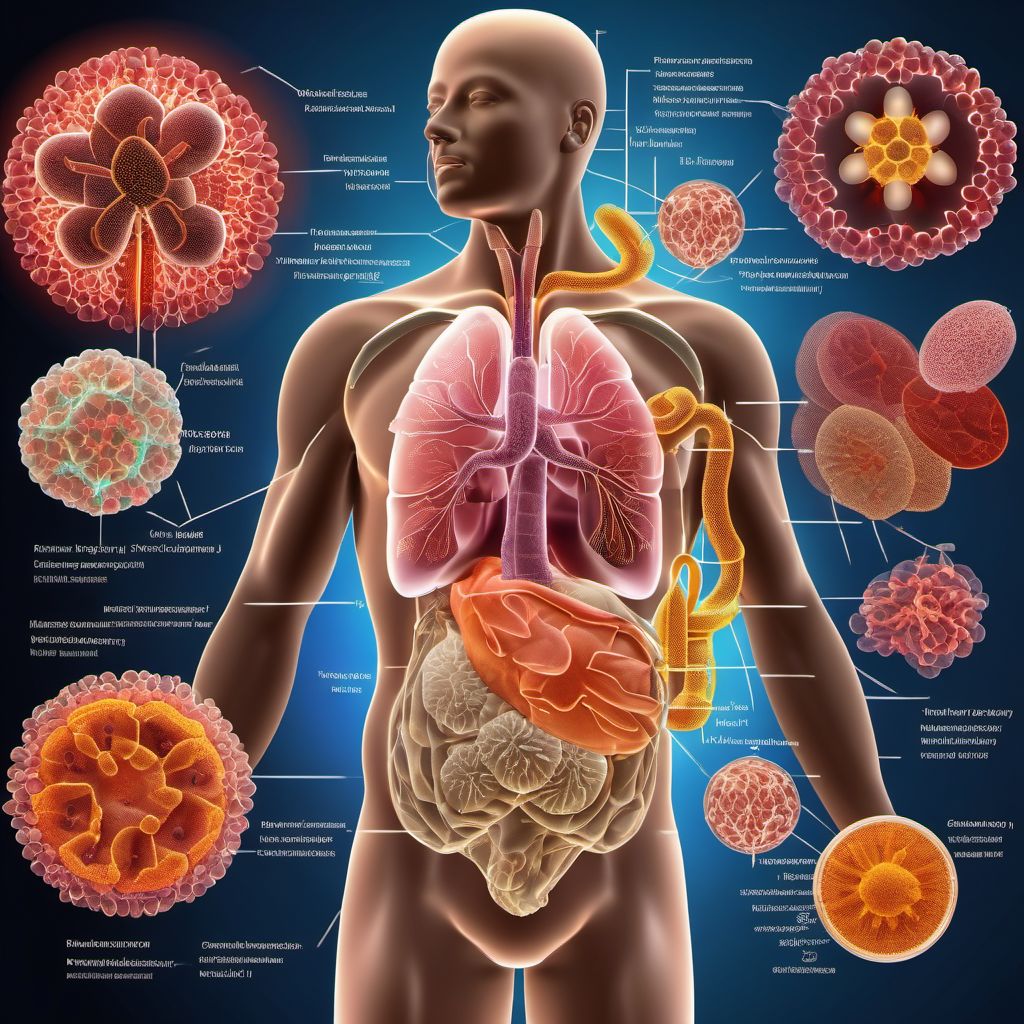
Tuberculosis of other specified organs Save
ICD-10 code: A18.8
Chapter: Certain infectious and parasitic diseases
Tuberculosis of Other Specified Organs: Causes, Symptoms, Treatment, and Prevention
Tuberculosis (TB) is an infectious disease caused by the bacterium Mycobacterium tuberculosis. TB primarily affects the lungs, but it can also affect other organs such as the bones, lymph nodes, and kidneys. When TB affects organs other than the lungs, it is called tuberculosis of other specified organs.
Here is some important information about tuberculosis of other specified organs:
- Causes
- Symptoms
- Treatment
- Prevention
TB is primarily spread through the air when an infected person coughs or sneezes. When the bacterium enters the body, it can travel through the bloodstream and affect other organs. People with weakened immune systems are more susceptible to developing TB of other specified organs.
The symptoms of TB of other specified organs depend on the organ affected. For example, TB of the bone can cause joint pain and swelling, while TB of the kidneys can cause blood in the urine and pain in the lower back. Other symptoms can include fever, night sweats, and weight loss.
TB of other specified organs is treated with a combination of antibiotics for a period of six to nine months. The exact treatment regimen will depend on the specific organ affected and the severity of the infection. It is important to complete the entire course of antibiotics to ensure that the infection is completely eradicated.
The best way to prevent TB of other specified organs is to prevent TB in general. This can be done by getting vaccinated with the BCG vaccine, practicing good hygiene (such as washing your hands regularly), and avoiding close contact with people who have TB. People with weakened immune systems should take extra precautions to prevent TB, such as avoiding crowded areas and wearing a mask in public.
TB of other specified organs is a serious condition that can cause significant health problems if left untreated. If you are experiencing any of the symptoms of TB, it is important to see a healthcare professional as soon as possible. With proper treatment, most people with TB of other specified organs can make a full recovery.